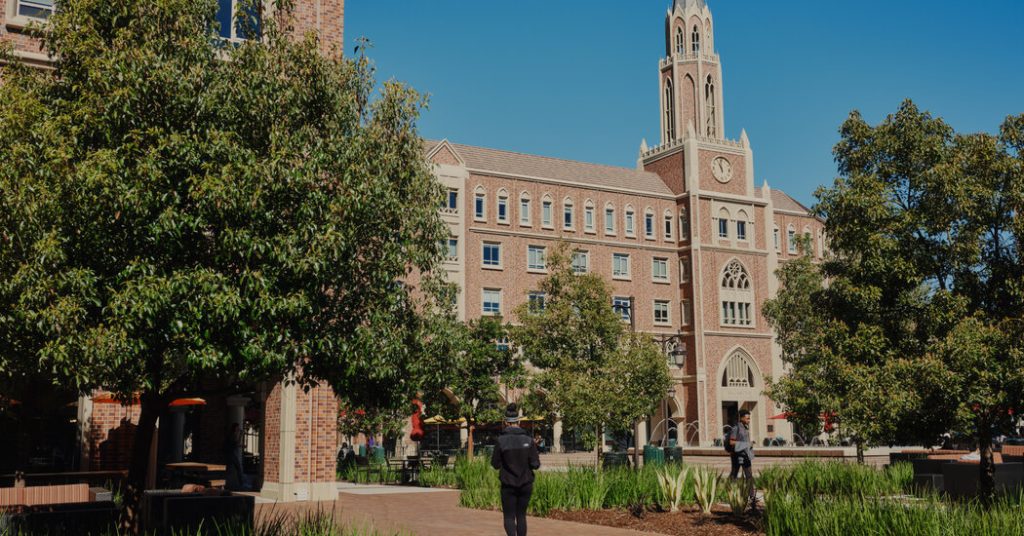The University of Southern California has stated that it has decided to cancel the graduation speech by this year’s valedictorian, Asna Tabassum, who is Muslim, due to security concerns. The decision came after pro-Israeli groups raised objections to Ms. Tabassum’s social media posts supporting Palestinians. This move has been met with criticism from the Council on American-Islamic Relations and Ms. Tabassum herself, who expressed her shock and disappointment, feeling that the university is giving in to hate and attempting to silence her voice. She is a first-generation American of South Asian descent.
Universities across the United States have been facing free-speech controversies since the beginning of the Israel-Hamas war. There have been heated debates over pro-Palestinian student protests, with some Jewish students and alumni claiming that these protests often turn into antisemitism. On the other hand, protesters argue that this pushback is an attempt to censor their political beliefs. The cancellation of Ms. Tabassum’s speech was announced by the U.S.C. provost, Andrew T. Guzman, citing security concerns and escalating tensions fueled by social media and the ongoing conflict in the Middle East. He clarified that the decision was not related to freedom of speech and there is no entitlement to speak at a commencement.
Dr. Guzman acknowledged that cancelling a valedictory speech goes against university tradition, but emphasized the risks related to security and disruption at the commencement. The decision has caused controversy, with many questioning the university’s motives. The Council on American-Islamic Relations has condemned the cancellation as cowardly and urged U.S.C. to reverse it. Ms. Tabassum, who has been unreachable for comment, expressed doubts about the university’s justifications in a written statement released on her behalf.
Ms. Tabassum was announced as the 2024 valedictorian of U.S.C. on April 5, hailing from Chino Hills, Calif. She was chosen from a pool of over 200 students who met the academic criteria of having a grade-point average of at least 3.98. A selection committee evaluated more than 100 applicants, considering her volunteer work with nonprofit organizations in Los Angeles, such as running a mobile blood pressure clinic for homeless shelters and co-founding a group that distributes medical supplies to needy areas globally. Following the announcement of her selection, a campus group called Trojans for Israel accused Ms. Tabassum of promoting antisemitic and anti-Zionist rhetoric, pointing to her social media bio that referenced Zionism as a “racist settler-colonial ideology.”
This incident reflects the ongoing challenges faced by universities in navigating free-speech issues in the context of political and social tensions. The cancellation of Ms. Tabassum’s speech highlights the complexities that arise when balancing freedom of expression with concerns of security and potential disruptions. The differing perspectives on the situation underscore the need for dialogue and understanding between diverse groups, as well as the ongoing importance of upholding principles of free speech while also addressing legitimate security concerns. The situation at U.S.C. raises questions about how institutions can best navigate such controversies while upholding their commitment to fostering a diverse and inclusive environment for all students.


